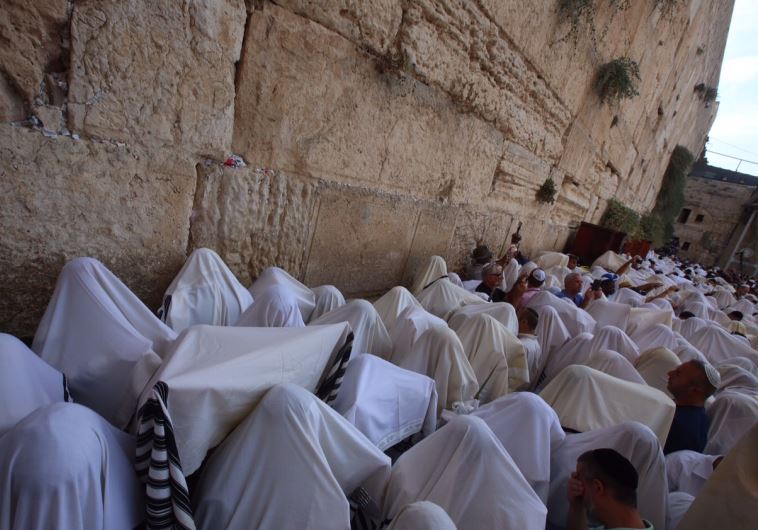Thousands flock to Western Wall for traditional priestly blessing
The traditional priestly blessing is said annually in honor of Succot, Passover and Shavuot.
 Priestly blessing prayer service at Western Wall, september 30, 2015(photo credit: MARC ISRAEL SELLEM/THE JERUSALEM POST)Updated:
Priestly blessing prayer service at Western Wall, september 30, 2015(photo credit: MARC ISRAEL SELLEM/THE JERUSALEM POST)Updated: